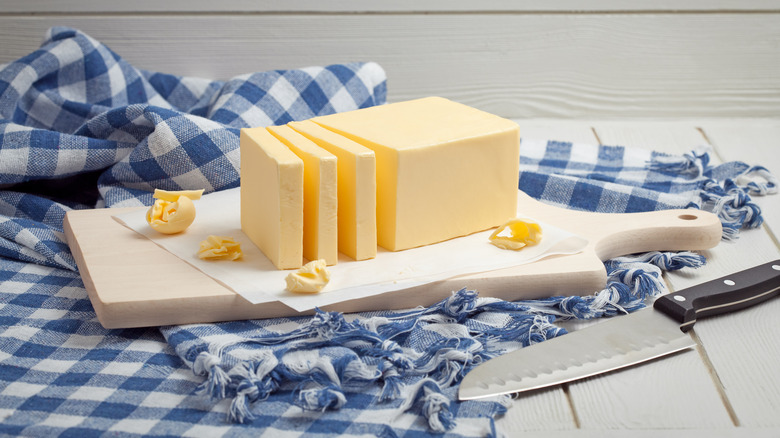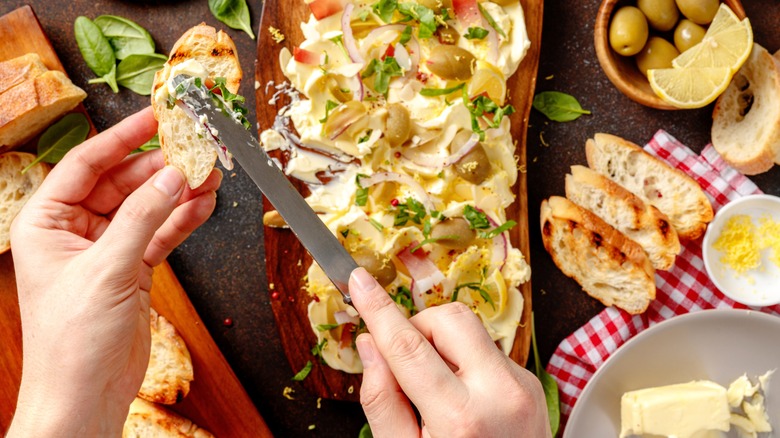What Makes Cultured Butter Unique
Butter is the stuff of dreams. According to BBC Good Food, this dairy product is made by "separating whole milk or cream into fat and buttermilk." Once cooled and compressed, that fat becomes a block of freshly made butter, which is subsequently used in cooking. And we all know that adding butter to anything makes it a thousand times better. This rich dairy product is so popular that in the U.S. that numerous competitions are dedicated exclusively to carving beautiful, life-sized statues out of butter (per WTAJ News/YouTube).
But, nowadays, so many types of butter are available that it could be tricky to choose the right one for all your kitchen needs. Well + Good talked to Makenzie Bryson Jackson, a food scientist, who mentioned several different kinds, including salted butter, clarified butter or ghee, whipped butter, brown butter, and even plant-based butter, which you might know as margarine. Bryson Jackson reveals that ghee is great for sautéing, while whipped butter, which is mixed with nitrogen, is great for "spreading on toast." And brown butter is excellent for baking cookies, especially those of the chocolate chip variety.
Go Bold With Butter reports that there's also European-style butter, which has a "higher fat and lower moisture content" than its U.S. counterparts. As a result, it's more milky and creamy. But there is one other type of butter with unique properties.
Cultured butter has more flavor and is healthier than regular butter
Among many types of butter, cultured butter is truly special. The Guardian reveals that cultured butter is made by adding live bacterial cultures to cream, unlike regular butter, which is just churned fresh cream. The whole thing is then left to ferment, and over time, it develops a thick consistency and a flavor profile that's best described as slightly tangy, most commonly with subtle notes of hazelnuts and buttermilk. And the secret is in the fermentation process: The longer you leave the cream and bacteria to ferment, the better the flavors and aromas will be (per Vermont Creamery).
And once you have your cultured butter, use it in anything you want, but bear in mind that it's especially good in baking and foods such as shortbreads, homemade pancakes, and pound cakes. Apart from being more flavorful than regular butter, cultured butter is also healthier. It's a good source of "vitamins A, D, E, and K-2," which are important for body development. But there's more. Due to lecithin, a mineral that's essential for cholesterol metabolism and found in cultured butter, your body can absorb cholesterol even better (per Cheese Kettle).
And Abbey The Food Scientist reveals that the bacteria in cultured butter produce acids, and the "acidic conditions help preserve the butter and keep it fresh for longer." So the next time you're in the dairy section, grab some cultured butter and test it yourself.

